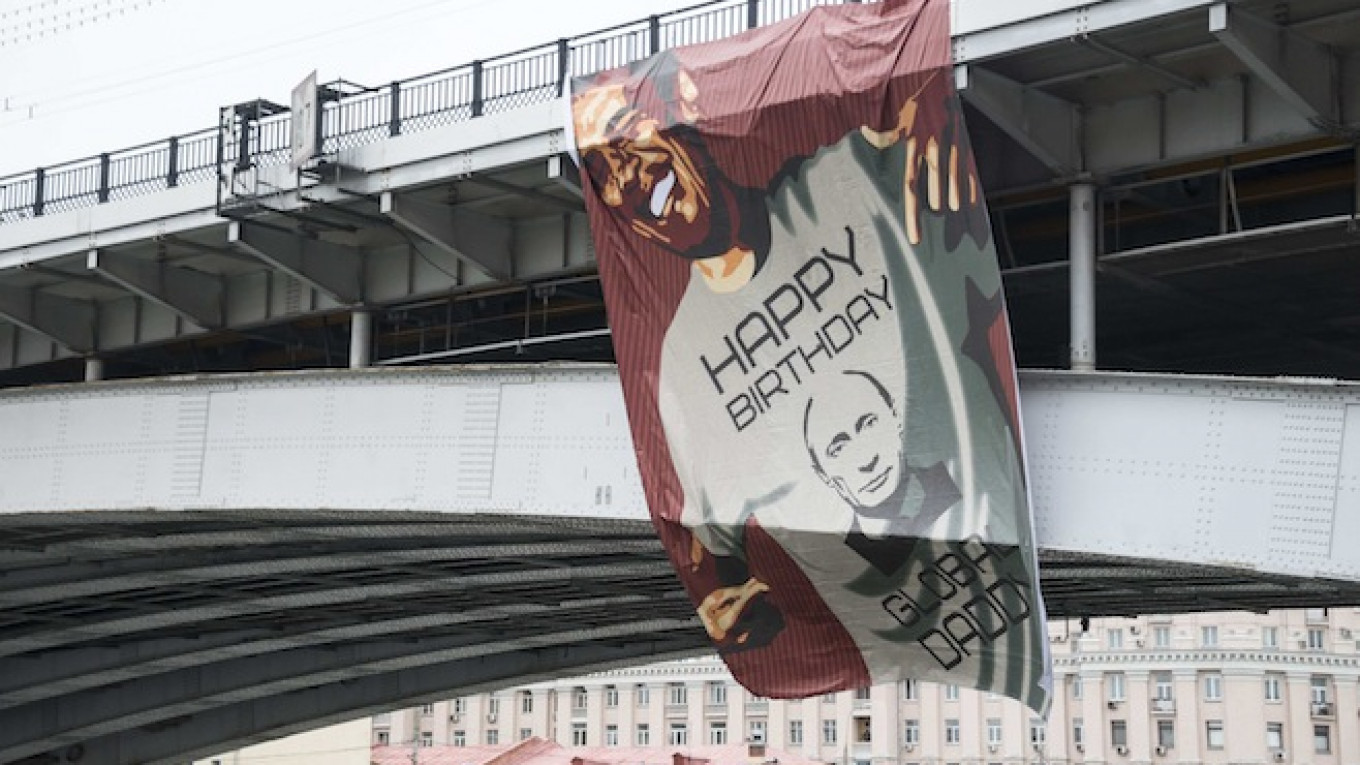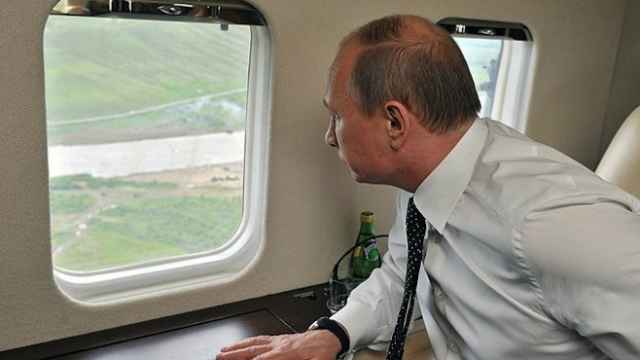Official documents published Monday show the Kremlin has scrapped the president's annual budget address. President Vladimir Putin's spokesman Dmitry Peskov told TASS that the set piece speech would, from now on, be folded into the state-of-the-union address, usually given in December.
While Putin floated the idea of combining the two speeches last year, the announcement comes as the economic headwinds facing Russia gather, intensifying pressure on the government to pull Russia's economy safely through the storm.
The annual budget address, which has been a fixture of the Russian political calendar since the 1990s, has traditionally been a vehicle for the president to shape social and economic policy for the year to come — a set of pointers used by ministers when they make their day-to-day decisions about services, spending and future priorities.
This year — Putin is saying — he will be offering no such guidance.
Nor will he be shown on state television grappling with the problems of a budget that can offer few spending promises as the economy dips toward recession, and oil prices slide.
Unpopular measures will inevitably be more associated with the government, headed by Prime Minister Dmitry Medvedev. And the time for unpopular decisions is not far off.
Russia's economic woes have mounted over recent months. A list makes grim reading: The International Monetary Fund predicts just 0.2 percent economic growth this year; oil prices have fallen by $10 a barrel in the last month; inflation in September was at its highest level for three years; capital outflow in 2014 is expected to climb to over $100 billion; and the ruble is at historic lows having lost over 20 percent of its value against the dollar since the start of the year.
Huge state bailouts are on the cards for some of Russia's biggest companies, including oil giant Rosneft, national carrier Aeroflot and state development bank Vnesheconombank.
Most of these problems have been generated by a foreign policy that many associate personally with Putin and a small clique of hard-liners. Economic considerations were firmly in second place as the Kremlin sought to establish Russia as a resurgent power on the world stage this year — first with the annexation of Crimea in March, and then with direct military intervention to support separatists in eastern Ukraine over the summer.
Throughout the current crisis, Putin has retained a public air of insouciance about Russia's mounting economic problems. Addressing participants at the annual VTB Capital conference last week, he even allowed himself a little joke. "All I have to do is smile to show the devil is not as frightening as he seems," he told an audience of investors and government ministers.
The cancellation of the annual budget address, however, gives the lie to Putin's insouciance: It risks looking like a presidential admission that Russia's economic woes are real — and not going anywhere soon.
A Message from The Moscow Times:
Dear readers,
We are facing unprecedented challenges. Russia's Prosecutor General's Office has designated The Moscow Times as an "undesirable" organization, criminalizing our work and putting our staff at risk of prosecution. This follows our earlier unjust labeling as a "foreign agent."
These actions are direct attempts to silence independent journalism in Russia. The authorities claim our work "discredits the decisions of the Russian leadership." We see things differently: we strive to provide accurate, unbiased reporting on Russia.
We, the journalists of The Moscow Times, refuse to be silenced. But to continue our work, we need your help.
Your support, no matter how small, makes a world of difference. If you can, please support us monthly starting from just $2. It's quick to set up, and every contribution makes a significant impact.
By supporting The Moscow Times, you're defending open, independent journalism in the face of repression. Thank you for standing with us.
Remind me later.






